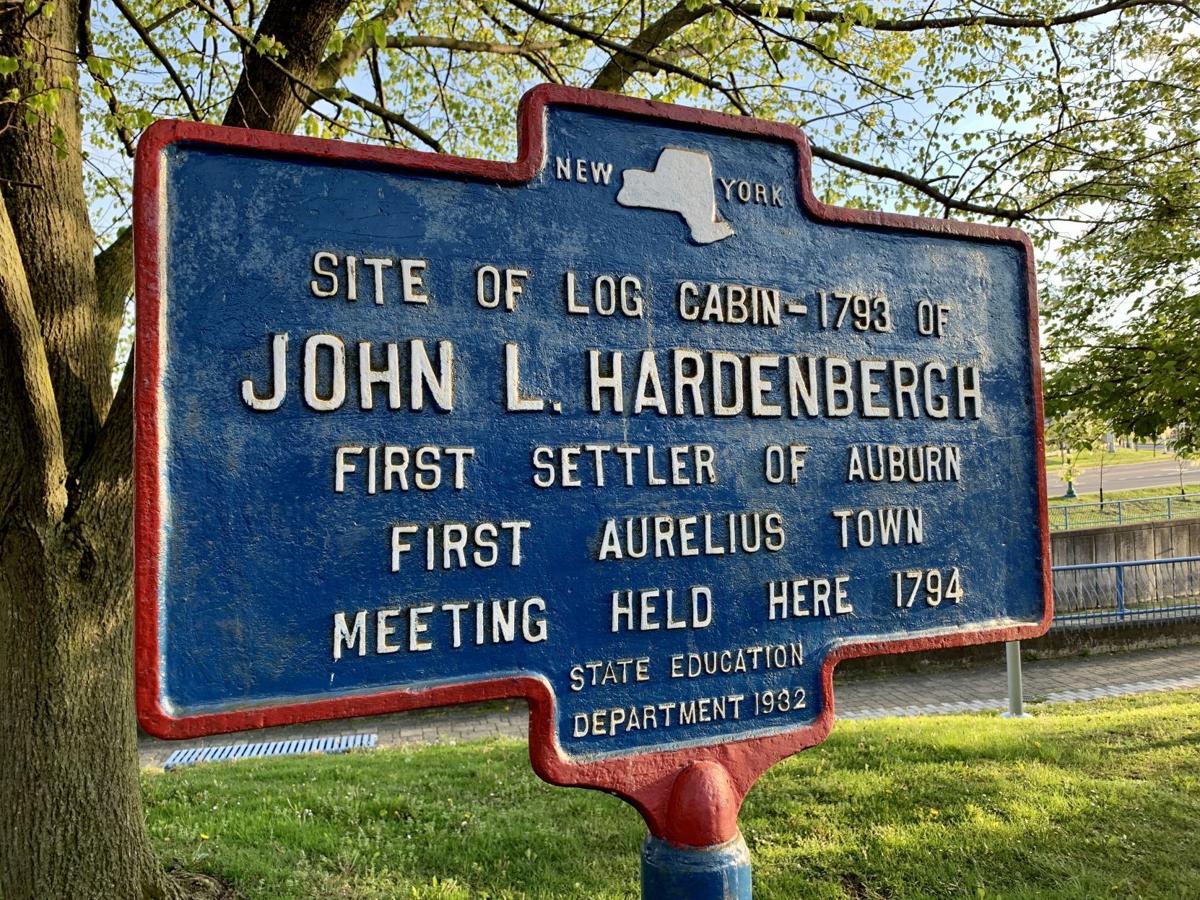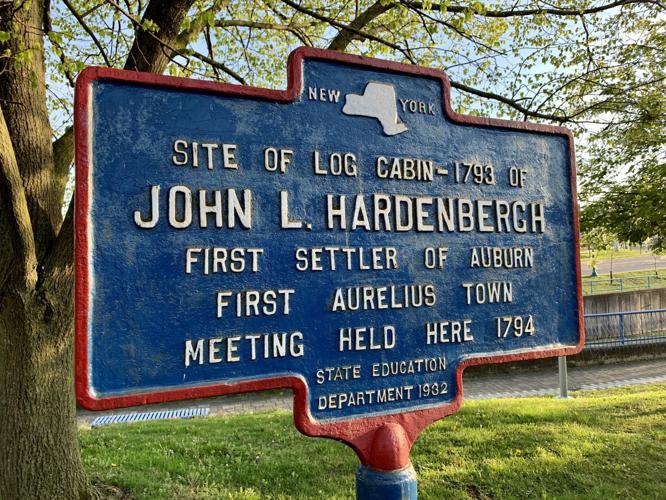When Col. John Hardenbergh arrived in the forest north of Owasco Lake in the summer of 1793 to build his new home, he was not alone. He was accompanied by “Harry” and “Kate,” two enslaved Africans brought to North America against their will and given European names. When Harry and Kate arrived, their roles were clear. Kate would cook, and Harry would perform the manual labor. The earliest history of Auburn, written in 1860 by Henry Hall, tells the story of Col. Hardenbergh, Harry, and Kate traveling into the wilderness, sleeping on the ground, and Harry engaged in the erection of Hardenbergh’s log cabin. According to Hall, Hardenbergh did little of the handiwork; it was Harry that felled the first tree and cleared the land.
Harry and Kate don’t have the benefit of a healthy written historical record like Col. Hardenbergh. What we know is pieced together by reading between the lines of early histories. There is no record of Harry’s original identity at birth, but we know from later census records that he was born in Africa in about 1755. By the time he arrived on the north bank of the Owasco River, Harry was already 38 years old. At some point in his early life Harry was taken prisoner, put on a ship, subjected to horrific conditions on the Middle Passage, and sold to Col. Hardenbergh. English was not Harry’s first language, Christianity was not his religion, and Harry was not his name. Yet under the threat of violence, he adapted. Harry was manumitted at the age of 51 upon the death of Col. Hardenbergh and took the last name “Freeman.” It is sadly ironic that Harry was violently subjugated to a man known by history as a freedom fighter, a so-called patriot who evidently could not release his tyrannical grip over another human being until his dying breath.
People are also reading…
At the time of their arrival in what would become Auburn, Harry and Kate had no surnames. They were forbidden from doing so in order to prevent the establishment of familial ties that could make separating families at slave auctions difficult. Nearly half of all Africans enslaved and brought to the U.S. came from the area between the Senegal and Gambia rivers on the western coast, or the area generally known as Congo today in west-central Africa. Most ship manifests of the time would have enumerated the number and perhaps the gender of those in transit to America, but certainly no identifying information. While genetic tracing has made some progress in helping the descendants of the enslaved find their roots, it is still nearly impossible for us to know where it was that Harry Freeman, one of our town’s three original citizens, came from.
The relationship between white master and African slave was founded upon that threat. In ways that are made more and more evident every day, we can see that the same old threat of violence remains. Harry Freeman was one of the true founders of our city, having cleared the land and put his hands to work building the first structures under the ever-present threat of violence. Yet you won’t find Harry’s European slave name on any street signs, nor can you easily find his gravesite. His role has been erased by the silence of generations of white historians who chose to drape our history in an American Gothic sheen of fake, banal respectability. By doing that, our predecessors deprived Harry of his rightful place in our hearts and our memories, and robbed all of us, regardless of race, of the wider spectrum of our shared heritage.

Andrew Roblee
That robbery of our past created a false narrative of a white-made world that persists in the minds of many, in which people of color were, and still are, secondary characters at best. The threat that Col. Hardenbergh held over those enslaved to him echoes in the chambers of government, at board meetings, and over the kitchen tables of our city. We see the product of this racist identity on a daily basis in the denial of economic opportunities, housing equality, access to health care, and basic safety and security. There is no true freedom until we let go of the racism that reigns tyrannically over our hearts. We are all enslaved to the madness of racism, a master impossible to please. Just like Harry, we will never be free until that master finally dies.













